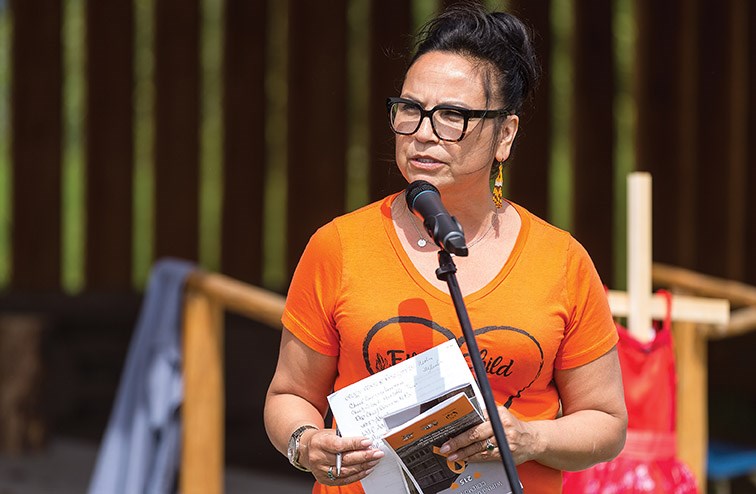The federal government announced the largest settlement in Canadian history – an agreement in principal to compensate First Nations children harmed by an underfunding of child welfare – but Carrier Sekani Family Services (CSFS) says the agreement is not the end of the story for First Nations children.
The $40 billion agreement-in-principal announced Tuesday (Jan. 4) will see $20 billion will pay for compensation, and the other $20 billion will be spent on reforming the system over five years.
The Assembly of First Nations said discriminatory funding and other decisions has led to a massive over-apprehension of First Nations children into the child welfare system in every province and territory.
Following a complaint filed in 2007, the Canadian Human Rights Tribunal ruled in 2016 that Ottawa discriminated against First Nations children who lived on reserve because of its chronic underfunding of family and child services in their communities.
It also ruled the government's definition of Jordan's Principle — a measure stipulating Ottawa provide timely health, education and social services to First Nations children — was too narrow and needed expansion.
An estimated 115,000 children were separated from their families and likely more than 100,000 were affected by the lack of access to services promised under Jordan's Principle.
"This wasn't and isn't about parenting. It's in fact about poverty and First Nations children being removed from their families and communities instead of being provided help with food, clothing or shelter," said Assembly of First Nations Regional Chief Cindy Woodhouse during the announcement.
The Child and Family Caring Society, along with the Assembly of First Nations, brought forward the initial 2007 human rights complaint that set off the 14-year battle over Ottawa's handling of child welfare for First Nations children.
“We will continue to negotiate with the Federal Government to ensure that the discrimination ends and that it never happens again,” said Mary Teegee, Executive Director of Child and Family Services at CSFS and the BC Board Representative on the First Nation Child and Family Caring Society.
“We must ensure the full implementation of Jordan’s Principle and solidify reforms that end the injustices so that another generation of children aren’t harmed.”
CSFS was originally created in the 1990s to help Carrier and Sekani peoples navigate the child welfare system, and now also provides social, legal, and health services to First Nations people living in remote and urban areas.
The organization says although the agreement in principle the largest settlement in Canadian history, this issue is not just about monetary compensation but is about justice for Indigenous children.
“We are all ethically bound to ensure that every child in this country, regardless of race or circumstance, is treated fairly and equitably,” adds Teegee.
“In a first world country, demanding substantive equality shouldn’t be an issue that has to be fought in court.”
She says negotiations will continue until justice is achieved and all children have what they require to live up to their full potential.
In October 2021, CSFS community chiefs declared a state of emergency regarding the impacts of opioids and toxic drugs on Indigenous youth.
CSFS says child and family welfare issues are at the heart of the overdose crisis.
First Nations Child and Family Caring Society of Canada executive director Cindy Blackstock also said Tuesday that the agreement in principle is an important first step, but noted it is non-binding.
"These are simply words on paper," she said at a separate news conference.
"We need to commit ourselves to keeping watch on the government of Canada and holding it accountable until it lands some of these things."
Over the next few months, the AFN and the Government of Canada and others will work toward a full compensation package in a final settlement agreement that will contain details on eligibility for compensation and the application process.
Work toward long-term reform will include AFN-facilitated engagement sessions that will guide negotiations to ensure the reformed program is relevant and responsive to the needs of First Nations children and families across the country.-
- with files from the Canadian Press


